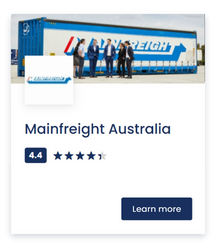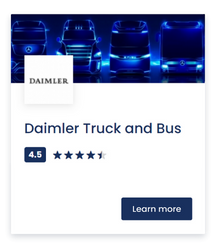20 must-know interview questions in the transport and logistics sector
Allan Ruddy
Organisations in the transport and logistics sector compete to recruit graduates who are intelligent, well-organised, driven, capable of performing top work under pressure, and knowledgeable about the industry. Of course, it isn’t always easy to identify such people from their applications alone—that’s why candidates in this field can expect to face a range of questions during interviews for jobs in transport and logistics.
Ensuring that you stand out from out candidates is a matter of preparation, which is where this article comes in. We’ve spoken to candidates who were successful in pursuing careers with leading transport and logistics companies. Below, you’ll find a list of practice questions inspired by what our insiders told us, as well as seven tips that will help you put your best foot forward.
20 questions
Open questions
- What work do you enjoy the most?
- What are your main interests outside of the office?
- What kind of culture do you thrive in?
- Which circumstances allow you to do your best work?
- What was your proudest moment at university?
Organisational knowledge questions
- What is your understanding of DHL’s vision and mission?
- Which of Jetstar’s values do you relate to most strongly?
- If you were the CEO of Linfox, what would you change to make it more competitive in the transport and logistics industry?
- What, in your view, are the major industry challenges facing Toll?
- What do you feel is the biggest accomplishment of the Department of Infrastructure within the past twelve months?
Behavioral questions
- How would you respond to an unhappy customer if an urgent package were unexpectedly delayed?
- What do you do when your schedule is interrupted? Can you provide an example of how you’d handle it?
- Have you ever had to defend an unpopular decision on behalf of a business? How did you go about doing so?
- Can you describe a goal you’ve accomplished? How did you achieve it? Were there any unexpected challenges along the way?
- How do you manage competing priorities and deadlines? Have you ever missed a deadline?
Technical Questions
NB: If asked, technical questions will relate only to the specific responsibilities of the role you’re applying for. Don’t be intimidated if some of the phrases below are unfamiliar!
- What is a bill of lading?
- What is the function of a bonded warehouse?
- What is the difference between logistics and transport?
- What is a warehouse tracking system?
- How would you calculate deadweight tonnage?
Transport & logistics employers
Browse more graduate employers ➜
Seven tips from our insiders
Demonstrate genuine passion
“Make sure you want to work for the company you are applying for and are not just applying for anything. Research about the role, what are the job requirements, and do your research about the company.”
Executive, Sydney, DHL
“Do your homework and be confident and genuine during your interview and assessment rounds. People who judge you during these rounds are highly qualified and very senior people in the industry so they will know if you fake your way. Wear a smile and be humble, just go for it!”
Graduate, Melbourne, Toll
Get your stories straight
“While job hunting, I was almost always asked the same situational-based questions during job interviews. So prepare yourself with stories to tell the interviewers that will paint yourself in a good light. Topics usually covered are leadership, teamwork, conflict resolution, and unfamiliar tasks.”
Graduate, Tauranga (NZ), Ixom
Take advantage of your individuality
“Don't be under the impression that there is a certain mould you need to fit. Know your strengths and drive them through but also know your weaknesses and have actions in place to build upon them. Do your research. Understand the company you'll be working for, so you know how you'll best be able to contribute but also so you can decide if it's the right company for you.”
Graduate, Sydney, DHL
Don’t be surprised if there’s more than one (or two) interviews
“Very lengthy and involved all different parties or the organisation. I thought it was a valuable interview process as it made me more determined to get the job at each progressive step. Assessments were well structured and based on previous life and work experiences.”
Graduate, Melbourne, Linfox
Know as much about the prospective employer as you possibly can
“Do your research about the company and what they do. Research growth areas and sectors and show your knowledge in the interview. Don't be afraid or shy - you are there to show them why you're a perfect candidate.”
Graduate, Melbourne, Toll
Research the values of the organisations and be prepared to discuss them
“Reading the company history, and values will help a lot. They are looking for people to fit the current culture they have, which they are very proud of.”
Graduate, Melbourne, Toll
Seize the opportunity to interview your interviewer
“Come prepared to every stage with your own questions, treat the interview as a conversation for them and for you - make sure it's the right company for you! And most of all, be relaxed and honest with every answer.”
Graduate, Brisbane, Swire


